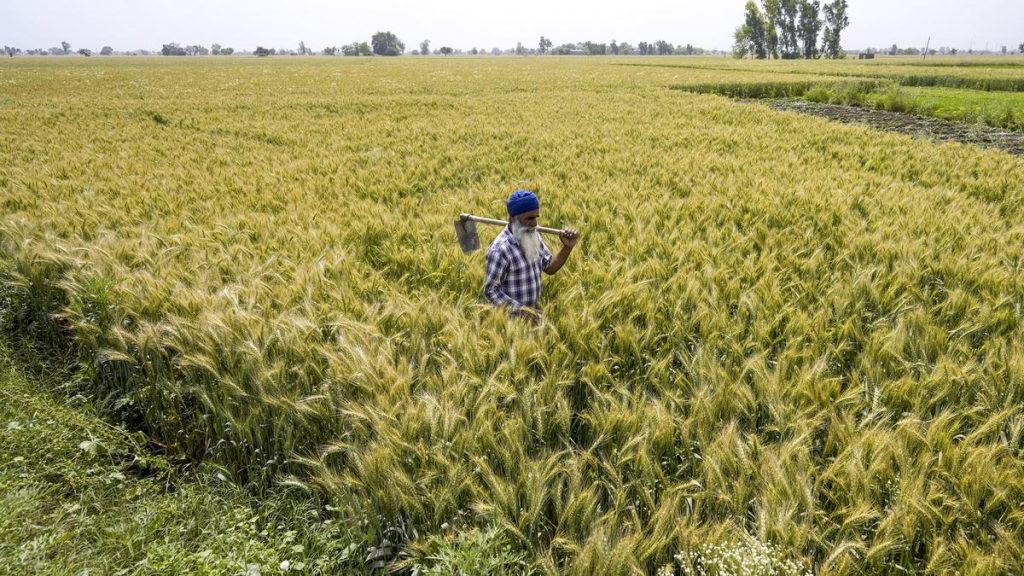
Bharath Beej Swaraj Manch and the Rashtriya Kisan Mahasangh, two organisations of farmers, have written to the Union Agriculture Ministry against the proposed amendments. File.
As the ‘Ad Hoc Open-Ended Working Group’ to enhance the Multilateral System (MLS) under the International Treaty on Plant Genetic Resources for Food and Agriculture (the ‘Plant Treaty’) meets in Peru from July 7 to 11, scientists, policymakers and activists from India have flagged concerns over the proposal to amend the treaty, particularly the Annex I of the treaty. They argue that the proposals are not only detrimental to the interests of Indian farmers, but also inconsistent with the Plant Treaty’s Preamble, and Articles 10 and 11.
The Indian Council of Agricultural Research (ICAR), however, said the country’s interests would be placed first, and protected during the negotiations.
India has nominated Principal Scientist, ICAR-National Bureau of Plant Genetic Resources, Sunil Archak, to the meeting as he has been looking after the activities related to the Plant Treaty for several years, ICAR Director General M.L. Jat told The Hindu. “He is highly competent to safeguard Indian interests. His visit was approved and conveyed on July 3, 2025 and he has already reached Peru,” Mr. Jat said.

Mr. Archak is also the Co-Chairperson of the working group meeting.
Meanwhile, the Bharath Beej Swaraj Manch and the Rashtriya Kisan Mahasangh, two organisations of farmers, have written to the Union Agriculture Ministry against the proposed amendments. Kerala Agriculture Minister P. Prasad, in a letter to Union Agriculture Minister Shivraj Singh Chouhan, also said the Centre should not approve the amendments.
“We are worried that this situation could co-opt India into the proposals prepared by the Co-Chairs, without a discussion on such proposals within India and with farmers groups,” a letter by the farmers’ groups to the Agriculture Ministry said.
“The Centre should consult farmers’ organisations and States before deciding on the amendments,” K.V. Biju of the Rashtriya Kisan Mahasangh said. “Several scientists have also supported the stand of the farmers,” Mr. Biju said.
They said the amendments would impact the seed sovereignty of India as well. “Annex 1 of the Plant Treaty is being proposed to be amended to expand the scope of the MLS to the fullest extent, bringing ‘all Plant Genetic Resources for Food and Agriculture (PGRFA)’ under its coverage. ‘All PGRFA’ would include all or any plant genetic resource having actual or potential value for food and agriculture, without exception. This means India will be legally obligated to share all of its plant germplasm under standard material transfer agreement (SMTA) determined by the Governing Body (GB) of the Plant Treaty, and not under India’s own terms and conditions. Such a proposal undermines sovereign rights of India over its plant genetic resources, as well as rights of the farmers over their seeds,” the letter to the government said.
Mr. Prasad said the amendment would significantly reduce India’s control over its plant genetic resources. The original treaty was meant to facilitate access to select crops that are vital for food security. Expanding it to ‘all PGRFA’ dilutes national sovereignty and may even affect the role of State Biodiversity Boards, especially when there has been no consultation with State Governments. “It must be remembered that Agriculture and Agricultural Research fall under the State List (Schedule VII) of our Constitution,” Mr. Prasad said.
Published – July 06, 2025 11:44 PM is








